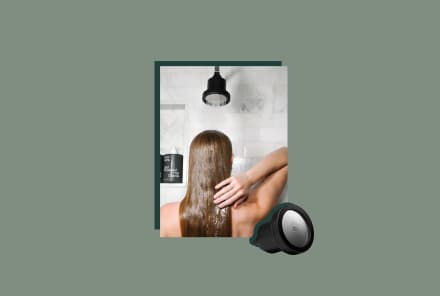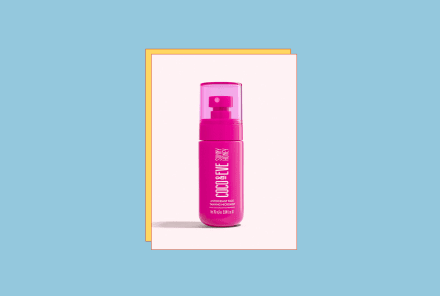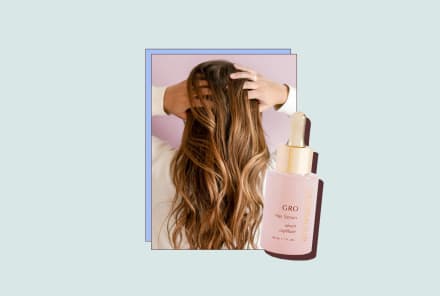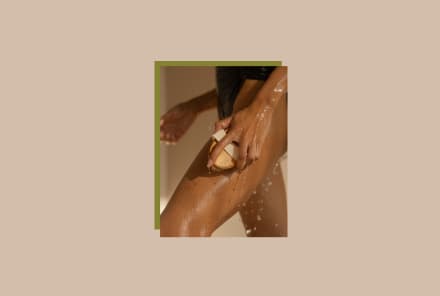Advertisement
Those In Menopause Should Try Probiotic Skin Care Products, Says This Derm


Several years ago, one major trend erupted in the beauty space: topical probiotic skin care. At this point in the world of wellness, we were well into the research of probiotics for gut and overall health (if you need a refresher, check out our guide). But topically? That was new and fresh. Then, a bit later, prebiotics hit the skin care scene, and it was clear: Microbiome-focused skin care was here to stay—and, dare we say, be the way of the future.
And while tending to your microbiome is important no matter who you are—everyone from an acne-prone teen to a 30-something who just developed rosacea can benefit—those going through menopause may have an increased need for microbiome-forward skin care.
Here, board-certified dermatologist Whitney Bowe, M.D., explains why and what to do about it.
A refresher on microbiome-friendly skin care.
Your microbiome is the collection of over a trillion bugs that live on your skin (yes, really; if you are curious to learn more, we have a full explainer). With a more diverse microflora—meaning: more types of microbes—comes a healthier skin barrier function, reduced inflammation, clearer complexion, and diminished dryness. Essentially your skin appearance thrives when the microbiome does.
Now, what topical probiotics do is help skin repopulate strains of good-for-you bacteria that we may lose due to lifestyle changes, beauty products, and naturally with age. There are several strains you may see, but some of the more common ones are Lactobacillus plantarum and Bifidobacterium longum, if you need help reading the ingredient label. Prebiotics, on the other hand, provide skin with nutrients that probiotics naturally feed on. You'll most likely see these in the form of plant sugars like xylitol or rhamnose.
And when you hit menopause, these bacteria become increasingly important. Why? Well, your biome changes dramatically during this time.
How menopause changes your microbiome and what to do about it.
When we go through menopause, our bodies experience a steady drop in sex hormones, like estrogen, progesterone, and the like. These affect our bodies in a myriad of ways—and, notably, in the skin it means a drop in collagen production, weakened skin barrier, less sebum production, and (most notably for our microbiome) changes in our pH.
"As you age, the pH of skin starts to rise, becoming more alkaline; this really does shift the types of bacteria we see on the skin," says Bowe. "This shift in pH actually turns on specific enzymes—called MMPs—that break down collagen. Not only that but pro-inflammatory bacteria or microbes thrive when pH starts to climb; it becomes a whole cascade of inflammation. So you need to introduce more lactic-acid-producing strains of bacteria on the skin; they can help restore the pH."
So if you haven't considered topical pre- and probiotics, which include the good-for-skin strains Bowe encourages, now's a good time to look into them (don't worry; here's a list of our favorites to get you started). But tending to your skin's pH and microbiome can also mean ensuring you're not using harsh soaps when you wash, as they are very alkaline and can throw off your skin's naturally acidic baseline. (Seriously, don't: "Using alkaline soaps is one of the worst things you can do for mature skin," warns Bowe.) You can also consider taking a probiotic supplement to help enhance your gut microbiome.* Probiotic supplements help support your gut microflora, which does influence your skin health by managing inflammation.*
The takeaway.
Significant changes in the skin are common during menopause. The good news is that there are several ways to help your skin as it goes through this adjustment and aging process—and microbiome-friendly products are just one way to do so.
Watch Next
Enjoy some of our favorite clips from classes
Enjoy some of our favorite clips from classes
What Is Meditation?
Mindfulness/Spirituality | Light Watkins
Box Breathing
Mindfulness/Spirituality | Gwen Dittmar
What Breathwork Can Address
Mindfulness/Spirituality | Gwen Dittmar
The 8 Limbs of Yoga - What is Asana?
Yoga | Caley Alyssa
Two Standing Postures to Open Up Tight Hips
Yoga | Caley Alyssa
How Plants Can Optimize Athletic Performance
Nutrition | Rich Roll
What to Eat Before a Workout
Nutrition | Rich Roll
How Ayurveda Helps Us Navigate Modern Life
Nutrition | Sahara Rose
Messages About Love & Relationships
Love & Relationships | Esther Perel
Love Languages
Love & Relationships | Esther Perel


















